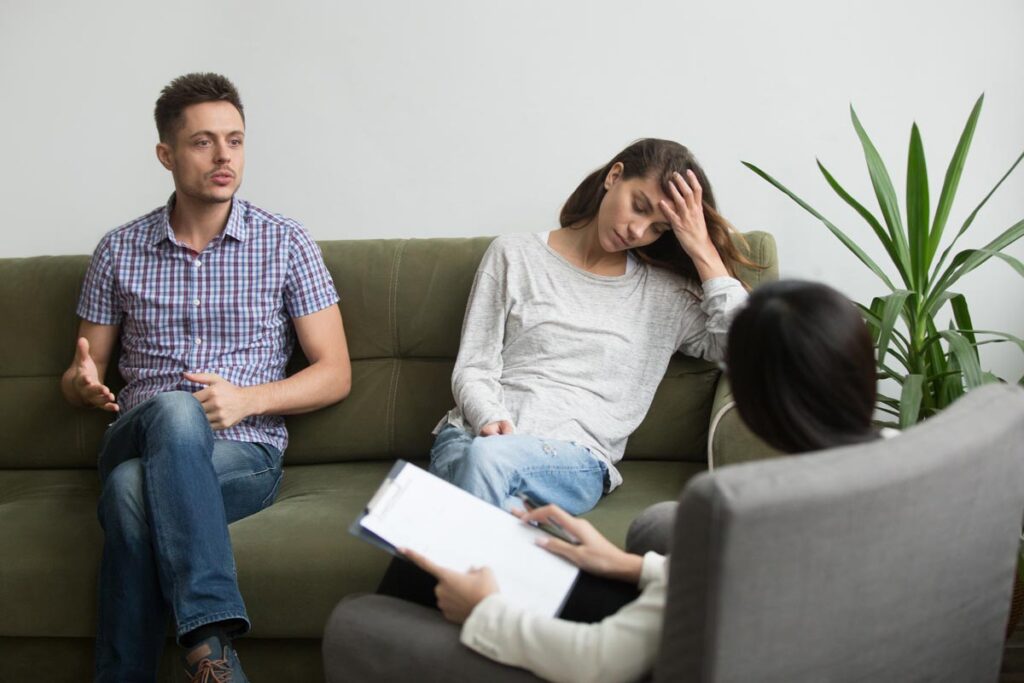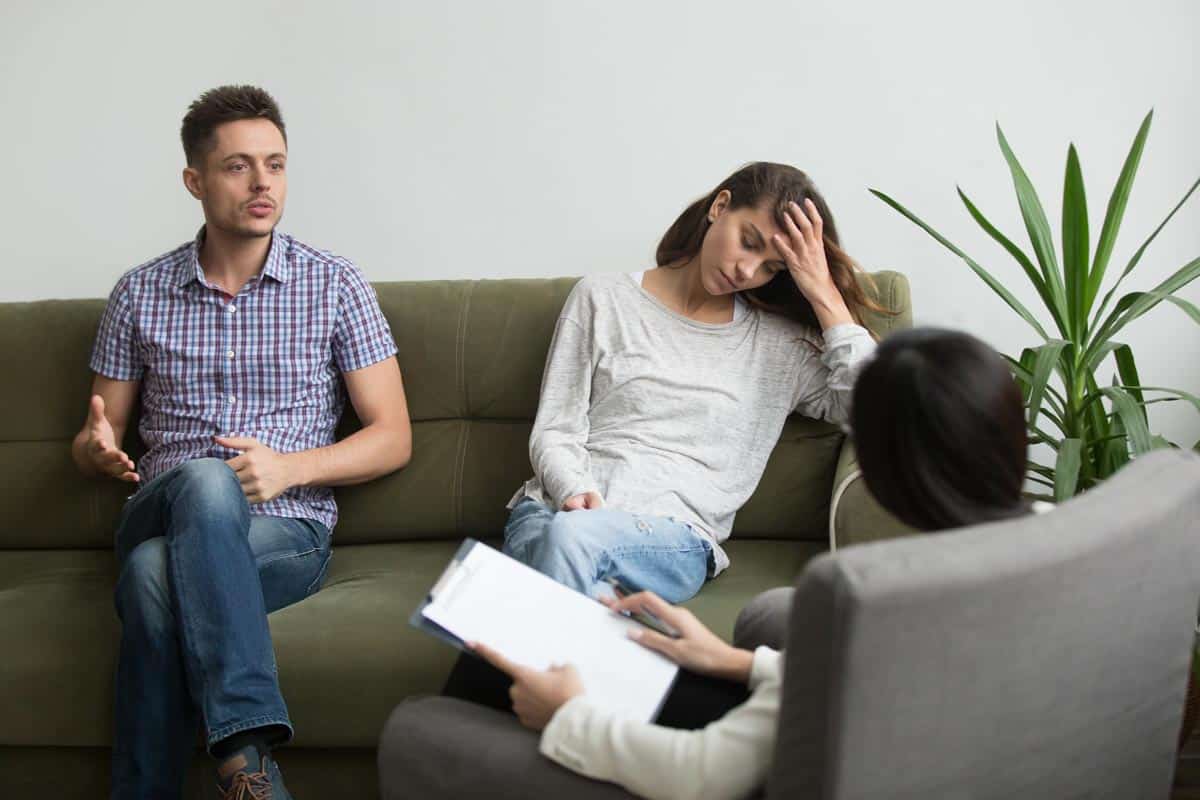Codependency is technically not a disorder, but it sure behaves like one. It is a behavioral pattern that, at first glance, appears like people “completing” one another. In reality, codependency involves dysfunctional interactions that serve to restrict the independence of everyone involved.
For example, in a codependent relationship, both partners measure their worth based on something other than themself. When you believe you need someone to be happy, it can become a slippery slope to major problems. With that as a foundation, let’s explore the rescuers, persecutors, and victims of the typical codependency triangle.
What Is Codependency?
As mentioned above, a codependent relationship can look symbiotic and balanced. Upon closer examination, you may recognize some messy dynamics that are choking the freedom out of both partners. They are dependent on one another in an unhealthy manner. If this pattern is not addressed, you may be lost in the Codependency Triangle.
What Is The Codependency Triangle?
This syndrome features the partners occupying a particular role or moving between three possible roles — hence, the triangle. The roles are:
Victims
These folks see themselves as incapable. Even if they’re actually competent, the relationship dynamics have convinced them to stop trying. After all, their partner will step in to rescue them.
Rescuers
While one partner slides into a false sense of victimhood, the rescuers are equally as needy. What they need is someone to take care of. When such a person is not around, they will unconsciously try to squeeze others into that role.
Persecutors
These are victims who, ironically, accept this agreement in deed but resent being reminded of their own ineptitude. They lash out, blaming the rescuer for the entire mess.
Common Behaviors Observed In The Codependency Triangle
- You seek control, but life feels chaotic.
- The people around you appear incompetent to you.
- You are easily triggered, and your feelings seem to always be hurt.
- You like to give advice.
- Sure, the dynamics of your relationship seem dysfunctional, but no one understands you.
How Do You Escape The Codependency Triangle?
For starters, regardless of which role you’re playing, you must stop doing what’s on the link directly above this. For example, here is just a small taste of what cannot continue:
- Blaming everyone else
- Seeing the need to fix other people’s problems
- Dwelling in self-pity
- Doubting yourself and others
- Believing you can’t handle basic tasks
- Giving advice
- Judging others
- Acting like you’ve got it all figured out
At the same time, here is some of what you want to do instead:
- Commit to self-care
- Take responsibility for where you are and what you do in life
- Challenge your inner critic and your negative self-beliefs
- Surround yourself with people who support you and these goals
This Sounds Great But How?
- Be Direct and Honest
- You have unmet needs, so express them. Ask directly for what you want. Don’t hold back, and don’t expect anyone else to read your mind.

Stop Rescuing People
If no one asks for your help, you are under no obligation to step into the void. At the same time, even if someone does ask for your help, it may not be the best choice for either of you. Practice taking your time to assess situations in a self-loving manner.
Set Boundaries
It’s long overdue that you understand where your needs end and where other people begin. Claim your autonomy and ask the people in your life to respect it.
Ask For Help
The Codependency Triangle is a complicated concept. It would be wise to talk with an experienced therapist to learn more and to get the guidance you need and deserve. Reach out to learn more about couples or relationship counseling.

